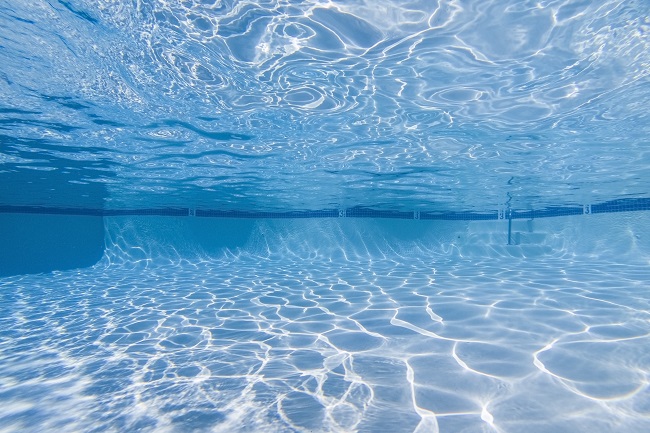A pool cleaning and maintenance system used to involve buckets of chlorine and little pH sticks, but the new salt water pools have become known for being easy on the eyes and skin, and for keeping the water ultra clear and soft. Very effective in their job of keeping the pool free of bacteria and algae, they also provide a more pleasant swimming experience. How do these salt water pools work?

It isn’t like the ocean. The salt water pool only has about a tenth of the salinity of the oceans. There is just enough salt added to the water for the salt-chlorine generator to work. The salt-chlorine generator is installed during construction or it can be retrofitted. Salt and water flow through the generator. It applies a tiny electric charge, which causes the elements that make up the salt and water compounds to disentangle themselves. Salt is sodium and chloride bound together. The bond is broken, and the chloride mixes with more water and forms a compound called hypochlorous acid. This very mild acid, in very tiny amounts, does the job of keeping the pool clean.
The salt-chlorine generator does not produce enough electricity to cause a problem in the water. You might think of it as operating on an atomic level. These generators usually last between three to seven years, and will last longer with good pool maintenance and correct concentrations of salt. The amount of salt added to the water depends on the size of the pool, and amount of water, and if previous salt was added. The generator can be expensive up front, from $1500.00 to $2500.00. Over the lifetime of the pool, the costs for replacement, upkeep, materials, and maintenance are similar for the salt water and traditional chlorine-cleaned pools.
The type and purity of the salt is important. Salt that is at least 99% pure, and without iodine, is recommended. Salt that is specific for pools, or is listed as food grade without iodine, should be used. Rock salt should not be used in a pool. Do not use calcium chloride instead of sodium chloride, or your pool will develop a case of barnacles!
Discuss with your construction and design professionals their recommendations for the proper size of salt-chlorine generator for the pool you are building, and a recommended maintenance schedule.
Are you looking for a high-quality backyard retreat and pool? We would love to work with you. Please get in touch!
